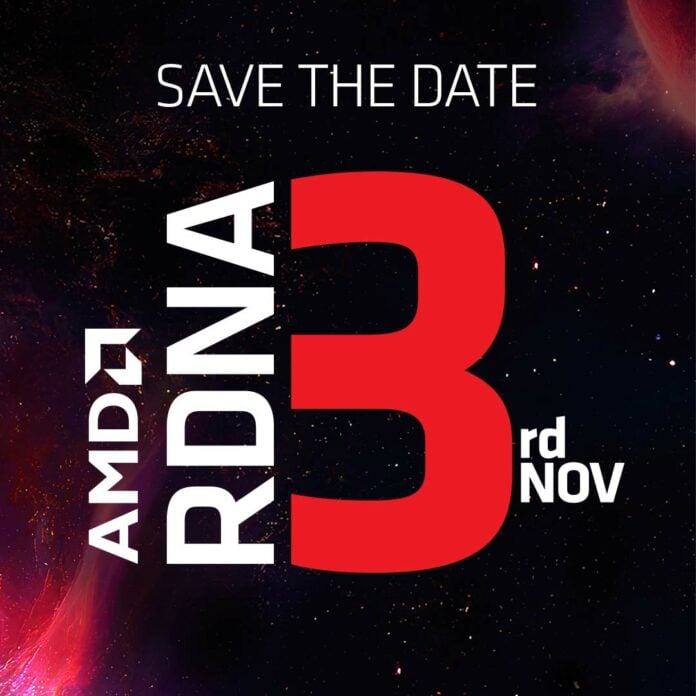All eyes are fixed on Nvidia’s imminent GeForce RTX 40 Series announcement, but there’s more than one player in the GPU arena.
AMD is reminding folk that next-gen Radeon graphics cards, based on the eagerly anticipated RDNA 3 architecture, are lying in wait. A late 2022 release date has been rumoured for some time, and we now have official confirmation with Scott Herkelman, senior vice president and general manager of AMD’s graphics business unit, confirming a November 3 launch date.
The brief announcement on Twitter states more details will be revealed soon, but at the very least, it’s another hugely important date in what is turning out to be one of the most exciting quarters in PC history. In the space of just a few months, we’ll be seeing cutting-edge CPUs from AMD and Intel, plus forward-looking GPUs from all three semiconductor giants; AMD, Intel and Nvidia.
Borrowing from the successful Ryzen playbook, RDNA 3 GPUs are expected to be the first to utilise AMD’s chiplet-based design and promise next-generation Infinity Cache as well as adaptive power management that helps drive claims of a 50 per cent increase in performance per watt.
Planning beyond the RDNA 3 reveal, AMD has also confirmed CEO Dr Lisa Su will be presenting an in-person keynote at CES 2023, beginning 18:30, January 4.
“Over the last few years computing has become an essential and pervasive part of our daily lives, helping each of us adapt how we work and learn remotely, while keeping us connected and entertained,” said Dr. Su.
“I am excited for the opportunity to deliver a keynote at CES 2023 to highlight the next generation of high-performance and adaptive computing innovations, and products that will push the boundaries on what is possible and play an important role helping solve our most important challenges.”
Pull up a chair and get comfy. It’s going to be a thrilling sequence of launches and we’ll bring you all the announcements and the all-important benchmarks.

